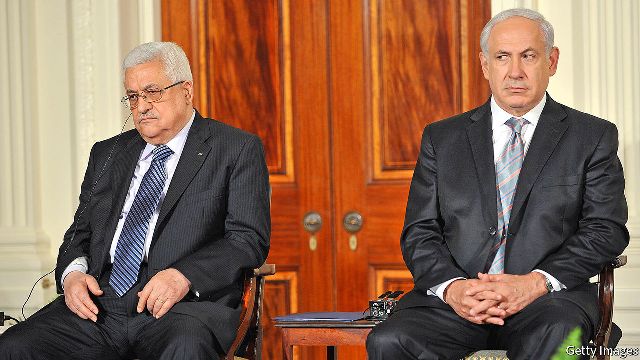Leaders from across the globe convened in New York on Monday to support Palestinian statehood, over opposition from Israel and the United States, as the Gaza Strip neared the two-year mark of a war that has brought mass death, destruction and hunger.
A summit meeting organized by France and Saudi Arabia ahead of the annual United Nations General Assembly in New York was portrayed as an urgent effort to salvage the long-deferred vision of a two-state solution to the Israeli-Palestinian conflict. But as Israel continues its offensive in Gaza City against Hamas, and rapidly expands its settlements in the West Bank, the notion seems more distant than ever.
“We must pave the way for peace,” President Emmanuel Macron of France said, to applause from those at the meeting and a standing ovation from the Palestinian delegation. “Today, France recognizes the state of Palestine.” He noted recent statements of recognition, some not yet formalized, by Britain, Canada, Australia, Portugal, Belgium and several others.
The Israeli ambassador to the United Nations, Danny Danon, told reporters, “We will take action” in response to the announcements. He declined to say if that would mean, as some Israeli officials have suggested, expanded settlements or outright annexations in the territory that has been envisioned as a Palestinian state. Israel’s response, he said, would be announced by Prime Minister Benjamin Netanyahu, who will address the United Nations gathering and meet this week with President Trump.
Mr. Netanyahu said in a statement on Sunday, “A Palestinian state will not be established west of the Jordan River.”
Mr. Trump “disagrees” with the recognition, the White House press secretary, Karoline Leavitt, said on Monday, and “believes it is a reward to Hamas,” whose Oct. 7, 2023, assault on Israel touched off the war in Gaza, which has killed more than 60,000 people.
Mr. Macron, in his remarks, denounced that attack, in which Hamas killed about 1,200 people and took about 250 hostages.
Mr. Trump “feels this does not do anything to release the hostages, which is the primary goal right now in Gaza,” Ms. Leavitt told reporters at the White House. “It does nothing to end this conflict and bring this war to a close.”
Mahmoud Abbas, leader of the Palestinian Authority, said the authority would form the government of the West Bank and Gaza, with no role for Hamas.
Addressing the people of Israel, he said: “Our future and yours depends on peace. Enough war.”
World leaders have a number of other major issues on their plate, as well. President Volodymyr Zelensky of Ukraine on Monday urged those gathering for the General Assembly to place “real, powerful pressure on Russia” to end the war it began against his country more than three years ago.
Leaders will also gather for a climate summit on Wednesday and discuss “accountable” governance of artificial intelligence.
Momentum for Palestinian statehood has grown as the conditions in Gaza have become ever more desperate. Around 10 countries either recognized Palestine formally as a state over the weekend or were expected to do so this week.
Globally, support for a Palestinian state is well beyond a tipping point — around 150 countries have announced recognition. Until recently most holdouts were in Europe, where governments had for years said that Palestinian statehood should come alongside negotiations with Israel.
That has now changed, with two heavyweights, Britain and France, stepping forward with unilateral recognition of Palestine. Last year, Ireland, Norway and Spain did the same. Germany remains a notable holdout.
Japan, which for decades often worked in concert with the United States on matters of global import, indicated on Monday that an announcement recognizing Palestine was imminent. Japan’s foreign minister, Iwaya Takeshi, told the conference the declaration was “not a matter of if, but when.”
Representatives from both Denmark and the Netherlands made similar statements, saying on Monday that their countries would recognize Palestine at a later date, once certain conditions had been met.
“We must all open our eyes and see human faces where war has placed the mask of the enemy or the features of a target,” Mr. Macron said.
António Guterres, the secretary general of the U.N., told the meeting on Monday that recognition is a right of Palestine, not a reward, “and denying statehood would be a gift to extremists everywhere.”
Coming along with the overwhelming support from African, South American and Asian nations, the drive to elevate Palestine to statehood carries with it a mix of symbolism as well as potentially harmful economic consequences for Israel. Experts in international law say countries that establish formal relations with Palestine may be forced to curtail certain trade with Israel to remain in compliance with their obligations to Palestine.
Among the five permanent members of the United Nations Security Council, only the United States now objects to Palestinian statehood. Yet Washington’s opposition is crucial, because the permanent members wield veto power. The Security Council has the power to approve statehood, and the United States stands in the way.
Last year, under President Biden, Washington blocked the Council from moving forward on a Palestinian bid to be recognized as a full member state at the United Nations. The vote was 12 in favor of the resolution, with only the United States opposed. Britain and Switzerland abstained.
But the momentum toward recognition of Palestinian statehood has not come with what many hoped would be the desired effect: convincing Israel to end the suffering in Gaza, where tens of thousands of Palestinians have been killed and most of the population has been displaced.
Philippe Lazzarini, the commissioner general of the U.N. agency that aids Palestinians, wrote recently on social media: “No place is safe in Gaza. No one is safe.”
Although Mr. Trump has at times expressed discomfort with the way Israel has been prosecuting the war in Gaza, his administration has remained resolute in its support of Israel.
During a visit to Israel last week, U.S. Secretary of State Marco Rubio seemed to downplay the possibility of a diplomatic deal to end the war in Gaza. He presented a united front with Mr. Netanyahu, who is pursuing a major military offensive in Gaza City that has been met with skepticism even from Israel’s top military brass.
Mr. Danon, the Israeli ambassador, argued on Monday that a two-state solution had been a source of debate in Israel before the Oct. 7 attacks on Israel.
“After Oct. 7, it’s off the table,” he told reporters, calling the Monday meeting, convened by France and Saudi Arabia, “theater.”
Ahead of the conference, the General Assembly ratified with an overwhelming majority — 142 votes in favor — the New York Declaration, a document put forward by France and Saudi Arabia that calls for the creation of a Palestinian state next to the existing Israeli one.
The declaration set out “tangible, time-bound and irreversible steps” toward a two-state solution. It also condemned the Oct. 7 attacks, as well as Israel’s assaults on civilians and civilian infrastructure in the Palestinian enclave and the suffering there.
NYT




















































